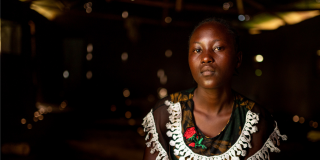
More than 50% of children in Kenya are living in poverty, and girls continue to be forced out of school.1 In Mozambique, only 39% of girls complete primary school.2
Girls across Africa are being forced to drop out of school early. Families are forced to make tough decisions when money and resources are limited. In most cases, families cannot afford the costs associated with an education.
School uniforms, stationery and school fees are expensive, and so many girls are held back from going to school to help with household chores instead. When a family’s priority is affording food and shelter, it’s no wonder education has to be left behind.
Every day a girl is out of school, she is made more vulnerable to early marriage, domestic violence and teenage pregnancy. No education and no skills bars them from a livelihood and future, trapping them deeper into poverty and unable to earn a living.
Meet Florence*
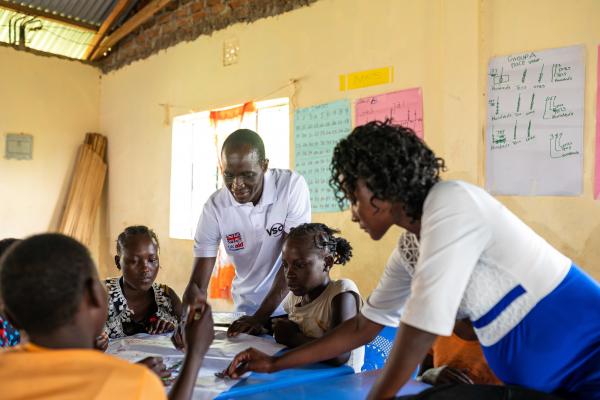
Florence was 15 and her sister, Penina, was 13 when their father forced them to leave school because he refused to pay the fees. He was often drunk and abusive, and would chase Florence away from home. She would have to find a place to sleep, sometimes outside, to escape. Home wasn’t a safe place.
Florence’s mother, who had already fled home, urged her and her sister to attend a VSO catch-up centre, where they could find the help they needed to get back into education. VSO has set up catch-up centres, equipped with highly skilled volunteers, mentors and teachers who are all on hand to provide support.
But it was too late for Penina – she fell pregnant, became ill and died. Penina’s death was a tragic, senseless loss.
Florence got the chance her sister never did and joined a catch-up centre. It was a place of refuge for her. She got the education she needed to build a positive future for herself.
The road to learning and earning
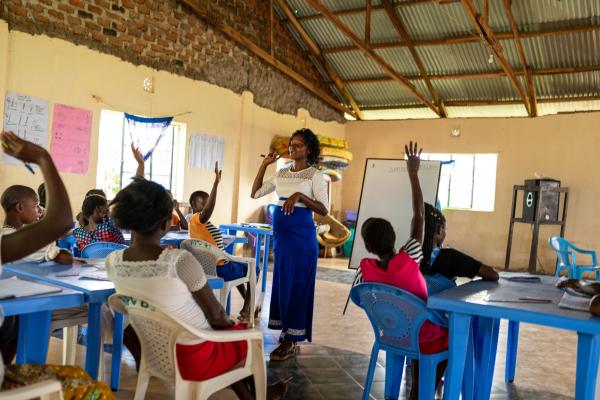
VSO supports marginalised girls who have had no previous schooling or had to drop out. Every day, VSO volunteers are working hard to get girls like Florence who are forced out of school and at risk, back into education.
Girls are given school kits, containing stationery such as a notebook, pencil, ruler and eraser to help her study. After learning basic reading, writing and counting skills, the girls can get a job and earn a living.
Volunteers train and coach local, qualified teachers to deliver effective and engaging classes. Mentors teach life skills and taught Florence about her rights and how to take control of her future.
The girls study in the catch-up centres for six to ten months. After they graduate, they are given the choice where to move onto next. While some are encouraged to re-enroll into the education system, others can move onto an apprenticeship.
Girls choose a vocational trade of interest and can learn on the job. This could be carpentry, dressmaking, hairdressing, masonry, and so on. Girls are provided with start-up equipment to help them earn a living. That could be a sewing machine, a hairdryer, or carpentry tools.
After 10-months in the catch-up centre, learning how to read and write in Swahili, and speak English, Florence graduated. She chose to pursue an apprenticeship in hairdressing and was given equipment to help her get on her feet to start working.
At times, an apprenticeship can lead to permanent employment, then the girls will go on to mentor others who have graduated from the catch-up centre.
Hope for the future
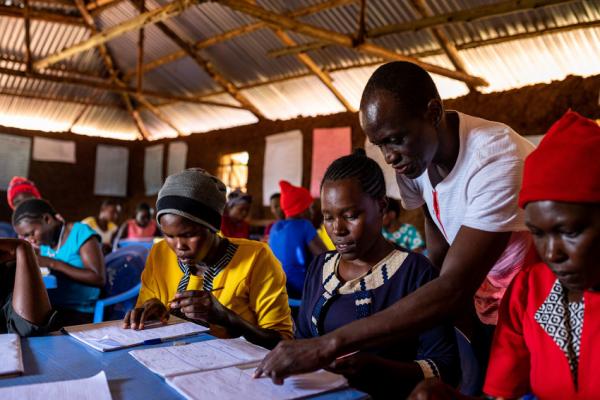
In Kenya, 82% of girls go to primary school but only 38% complete their schooling. In Mozambique, a shocking 4% of girls finish secondary school.3 Across Africa, girls are constantly forced out of school for reasons that are rooted in poverty. It’s not fair.
But girls like Florence now have the chance to learn and earn their way into a brighter future, thanks to VSO’s catch-up centres and kind supporters such as yourself. Florence says,
I feel very proud and very grateful. The catch-up centres taught me my rights and responsibilities as a girl, and I became smart and confident. I have learnt to love myself. I can now be somebody in the future and take care of myself.”
Today, Florence is still working as a hairdresser and is earning a living. She’s planning to continue hairdressing and expand her business by selling beauty and cosmetic equipment too. She now also lives with her grandmother and says, ‘I feel safe and comfortable. I am in a good, peaceful place’.
Florence’s sister, Penina, may not have got the chance for a better future but we have to make sure no other girl gets left behind. Education is the greatest protector. We need to support more girls like Florence.
You could help more girls learn and earn their way out of poverty. Please give if you can.
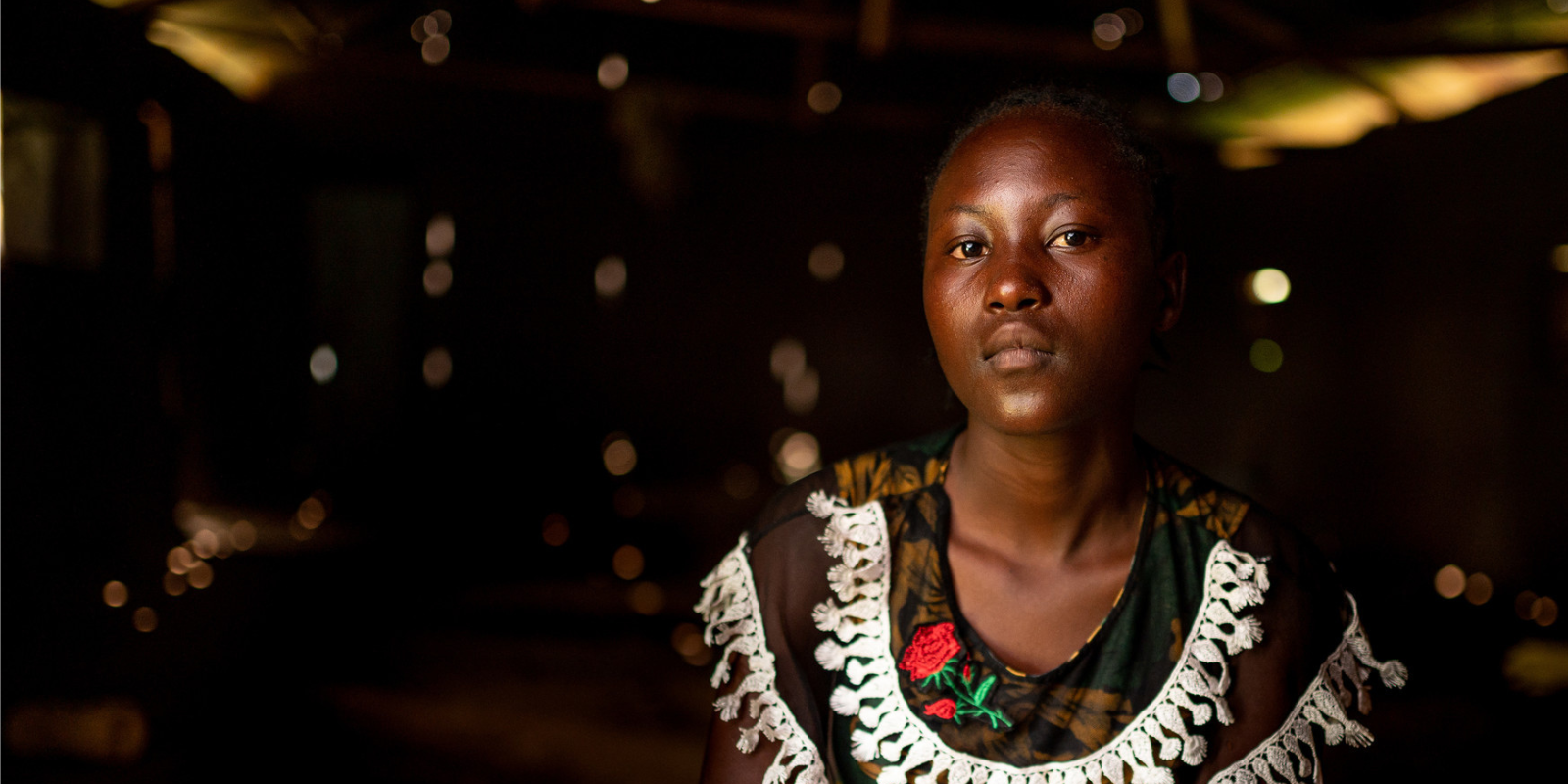
Your help is needed to make sure no girl is left behind.
*Pseudonyms have been used to protect identities.
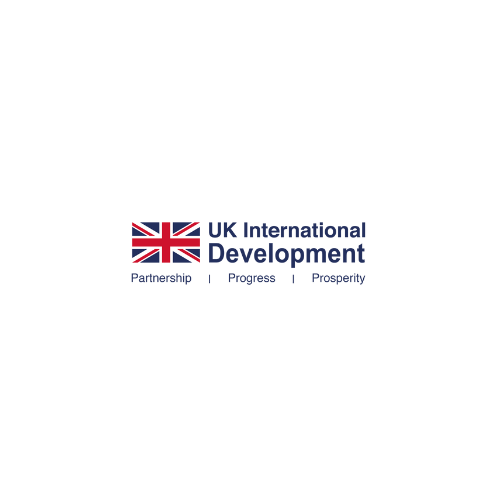
Footnotes
Read more

The year 2024 in photos and the stories behind them
Here we share some of VSO’s iconic imagery over the past year that capture the resilience and determination of the communities and volunteers we support. It’s also an opportunity to pay tribute to some of the people behind the lens who have helped bring their stories to light.
'Here's to every volunteer' - an inspiring song from volunteer and artist Larry Dwayne
Known in the music industry as Larry Dwayne, Lawrence Ochieng is a Kenyan volunteer, hip-hop artist, and activist who uses his platform to raise awareness about climate change. Listen to his original song, 'Volunteer'.
Meet the 2024 Volunteer Impact Award winners
Our annual Volunteer Impact Awards celebrates the incredible impact made by VSO volunteers across the world. Learn more about our four 2024 winners.
